Making our organising truly empowering and effective
In our work for social change it is crucial that we develop the capacity to embody our values between us, to develop skills for mutual empowerment and inclusion, to transform conflict and to empower our efforts of collaborative transformation.
This training is structured around core elements of our Transformative Collaboration training. Building on those key elements participants will choose strands and modules covering:
We’ll explore skills for truly embodying our values in the ways we work together – and gaining understanding that can make our ways of organising truly empowering and effective.
TRANSFORMATIVE COLLABORATION STRAND
Drawing on our Transformative Collaboration Training, this strand will help you to collaborate, communicate and make decisions effectively. It will help you to draw out the best in yourself and others, stay in healthy relationship, build teams based on shared values – and get things done!
Working with others is not always easy. It can feel frustrating, draining and unproductive. Meetings drag, personalities clash, power conflicts arise, chaos reigns and all this gets in the way of achieving what the group or organization set out to do at the beginning. But collaboration is key to collective agency and empowerment. It’s a basis for effectiveness, a crucial means of embodying our values, and it can bring forth emergent and creative qualities that alone we could barely imagine. Collaboration is not only a root of social transformation, it also provides a vital context for individual transformation, enabling us to share and live out our deepest values.
In whatever way we envisage contributing to the wellbeing of our world, for most of us it is going to mean working with others. It is going to mean collaborating. Collaboration is key to collective agency and empowerment. It’s a basis for effectiveness, a crucial means of embodying our values, and it can bring forth emergent and creative qualities that alone we could barely imagine. And collaboration is not only a root of social transformation, it also provides a vital context for individual transformation, enabling us to share and live out our deepest values.
This core strand will use participatory and immersive learning you will learn how to:
ANTI-OPPRESSION AND INTERSECTIONALITY MODULES
These aspects of the training will help you to learn the know-how of building more inclusive and empowering environments for activism and social change work. We will share tools and practices that aim into reducing discrimination based on race, gender, psychosexual orientation, economic status, disability, age, ethnicity or religion.
Systems of oppression often sustain themselves when we are unable to acknowledge and work well with the power dynamics, privileges and mechanisms of discrimination that exist in our groups, communities and societies. In anti-oppression training we carefully unravel those structures, gradually building a safe ground that can support us to explore these challenging themes step by step. Although the training content and process will address a wide range of discrimination and oppression structures, the main emphasis will be on how we can work with the dynamics that exist in smaller groups.
The learning process will be held by facilitators using exercises and activities supporting self-reflection and self-evaluation around the following topics:
Applying foundational knowledge, frameworks and concepts used in anti-oppression work, participants will be invited to explore ways to deal with discrimination and oppression at the individual, organizational and systemic levels. We will encourage participants to step out beyond shaming and blaming strategies, and to reflect on the personal capacities and boundaries that grow out of the unique experience of our own conditioning. The focus will be on identifying ways of empowering people with experience of oppression in order to be able to build more sustainable social movements, as well as reflecting on the links between anti-oppression approach and solidarity practices.
CONFLICT TRANSFORMATION MODULES
Conflict in our groups is common. It’s natural. And it’s inevitable. It can be painful and damaging, undermining our efforts and draining our energy. But it can also become a source of creativity, learning, and a basis for deepening trust and learning between us.
Learning to work well with conflict, developing the skills to find the transformative potential within them, and supporting everyone involved to learn and grow in the process can deeply empower our work for social change.
This strand will offer methods, frameworks for transforming conflict into opportunities for deeper understanding and learning. We’ll learn how to support the building of shared understanding, to hold such spaces more safely, and attend to the healing involved in handling conflict well.
MINDFULNESS FOR SOCIAL CHANGE STRAND
Mindfulness is about being fully present here and now, being in touch with what is going on inside us and around us. We can harness our attention and awareness to become more responsive and connected, and to engage courageously and effectively in the world. On this training you will learn to develop the empowering skills of mindfulness in service of values and action for social and ecological justice.
Drawing on our Mindfulness for Social Change training, this strand will share practices to train our minds and focus our attention, we build inner resources to become more balanced, energized and emotionally intelligent. In our fast-paced, stress laden, and complex world, Emotional awareness is crucial for being resilient in challenging times. It is central to mobilizing, engaging, communicating and influencing others, as well as thinking deeply, creatively and strategically. Harnessing mindfulness has never been more important in helping to bring about social change.
This strand will help participants to:
It is suitable for those who are new to mindfulness or new to exploring secular mindfulness approaches (such as mindfulness based stress reduction/cognitive therapy) and how it can support being an effective agent of social change within groups, communities, movements or organisations.
VENUE
This course will be hosted at La Solana, a venue close to the Ulex Project centre that we are using to host rescheduled courses that were impacted by the Covid pandemic. Venue details to follow.
In the solidarity economy:
(See details of our approach to radical economics here)
Contact us
to apply
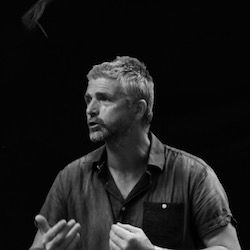
Location:
G has been involved in social movement organising and education since the late 1980’s. He is a highly regarded trainer and has designed numerous training programmes covering areas such as psychosocial resilience in activism, the ecology of social movements, and leaderful organising. As a founding member of the Ulex Project, he is known for highly innovative work blending pedagogical methodologies. This holistic approach to activist learning has inspired numerous training initiatives across Europe. He currently steers the strategic development of the Ulex Project and its social movement capacity building programme.
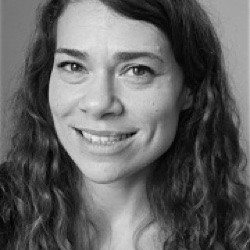
Location:
Paula was INTRAC‘s Training Manager for more than 5 years. She was responsible for managing INTRAC’s broad range of training programmes including tailor-made, open, and blended courses. She has continued her work with INTRAC as an associate and trains on training of trainers, facilitation skills, M&E of training and managing roll outs effectively. She is a co-founding member of the Training Providers Forum which is an informal network of non-profit training providers working across the development and humanitarian sector. The forum has been running for five years, sharing best practices in training provision, forming collaborations, and offering yearly workshops to sector on key themes such as M&E of training and building the capacity of local training providers. Paula has also been exploring how inner practices can help to support social change work through building personal awareness, resilience and insight. She is training to be a mindfulness teacher and is a co-founding member of the Mindfulness and Social Change Network.
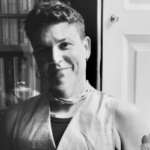
Location:
Ilaj’s background is in grassroots organising, involving them in various strands of social movement work for nearly two decades, mostly in Eastern and Southern Europe. In more recent years, they have turned their attention to broader European movement building as part of the Ulex core team, where they design programmes, coordinate training teams and facilitate on a wide range of training courses. Ilaj is an experienced trainer with a broad range of skills, particularly in holding space for collective exploration of burnout, weathering repression, navigating trauma and cultivating solidarity in social movements. They are passionate about working with body awareness as a radical means of deconstructing internalised systems of oppression. They have been exploring the intersection between transformative somatics and political organising for a number of years.
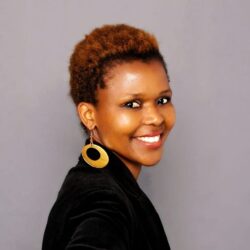
Location:
Nontokozo says: I have always been passionate about building community, inner engineering, group dynamics, motivating and empowering others. I enjoy tackling women issues, building bridges of hope and healing between Africa & Europe and beyond, I love sharing knowledge on conscious living, advocating for climate and social justice, and regenerative education. My work includes education on diversity and racism awareness. I am a firm believer of UBUNTU an Indigenous African Knowledge System – “I am because we are”. I am committed to creating safe spaces and holistic events for individuals and group processes, to support in achieving desired goals and creating a common vision, using indigenous wisdom, processwork facilitation and other methodologies.’
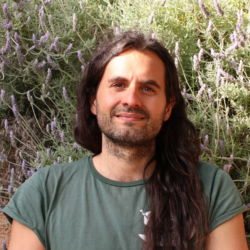
Location:
Nature-lover and “unlearner”, my vocation is to foster social and cultural transformation from different perspectives. My origins and rural life, and my history of participation in social movements, connect me to the “earth” dimension of life, to community and to collective work for social and environmental justice. Facilitation has been my main activity since 2016, specializing in the emotional management of groups and conflict transformation. I also work with groups of men around gender and sustainable masculinities and do research in the fields of Systems Thinking, Deep Ecology and Group Dynamics.

Location:
An Maeyens (she/her) is a facilitator and trainer with over two decades of experience in grassroots movements. She specialises in creative, inclusive agenda design and brings deep expertise on group culture, power dynamics, and transformative learning. Starting of in the anti-globalisation movement she has trained thousands in civil disobedience, supported international coalitions, and developed multilingual training programmes and toolkits. Her work spans movements, cultures, and countries, guided by a commitment to care, accessibility, and leaderful organising.

Location:
Ari’s activism began in 2002, at age 16, as a Bosnian refugee in Canada, where they founded and coordinated a group for LGBTIQ high school students and allies. They were a co-founder and leader at kolekTIRV in Croatia and Trans Network Balkan, involved in community organizing, advocacy, program management, team coordination, capacity building, education, media work, campaigns, events, fundraising, etc. In 2024, they joined the Supervisory Board of the Croatian Trade Union Collective of United Precarious Workers and Activists (SKUPA).
Beyond the Balkan region, Ari served as a Board member at Transgender Europe (TGEU), where they held roles as Secretary, Treasurer, and later Co-chair. They have also been a trainer with the Center for Artistic Activism and served on the Advisory Committee and since 2022 as a Community Care Facilitator at FRIDA — The Young Feminist Fund. Since 2024 they are the Operations Manager at Global Philanthropy Project.

Location:
Sergio (all pronouns) was born in Romania and migrated to Germany in the early 2010s. In the past, he was a social worker with homeless people and a social consultant for Eastern European migrants for various organisations. Trained as a filmmaker, he spent two years making a documentary about the ‘civic reawakening’ in Romania and the waves of protest it brought with it. In connection to this, Sergio is currently co-steering the development of an online open-source participative knowledge production platform on activism in Romania. Over the past nine years, Sergiu has offered his skills to various journalists, grassroots collectives and campaigns, mostly working within the labour rights, climate justice, international solidarity and anti-authoritarian movements in Germany and Romania. Nonetheless, his biggest focus since 2020 has been his work as an organiser with the anarcho-syndicalist Free Workers Union, where he focuses mostly on organising Romanian migrant workers on construction sites, in factories and in the agricultural field.

Location:
Linzy Na Nakorn is a movement director, politicised somatics practitioner, community organiser and facilitator. For the past decade she has been facilitating movement, body work and creating theatre, dance and participatory performance that advocates for and organises with communities in pursuit of housing, disability and racial justice. Her movement practice focuses on trauma-informed approaches to building resilience, capacity and joy via way of the body for personal, interpersonal and community sustainability. Linzy was a Co-Director of The Big Ride for Palestine in partnership with The Gaza Sunbirds, Native Woman Ride and Middle East Children’s Alliance; using cycling as a tool for mobilising active solidarity and in support of campaigning for the rights and self-determination of the Palestinian people. Linzy is part of a UK network of activists and artists advocating for Radical Care – supporting organisations, researchers and institutions to work towards system change in societal approaches to labour, leadership and access.

Location:
Jeroen (he/him pronouns) has been involved in grassroots social movements for more than two decades now, starting back when he was fifteen. Throughout the years the fights for “climate justice” and “migrant justice” have been consistently on top of the list of struggles that make his heart beat faster. A key transformative moment for Jeroen was reading Paulo Freire’s Pedagogy of the Oppressed. Freire’s revolutionary pedagogy gave him a language to support the creation of emancipatory learning environments, rooted in a desire for collective liberation. Jeroen has also been exploring in depth Boal’s Theatre of the Oppressed and Joanna Macy’s The Work That Reconnects among other methodologies to build his trainer’s toolkit. Inspired by the liberatory possibilities of these traditions, he started an organization with a friend, LABO vzw, based in Belgium, where he has worked as a trainer and campaigner between 2013 and 2023.

Location:
Ella brings more than 10 years’ external experience working with not for profit and community based organisations across diverse themes including: advocacy for migrant communities; local community engagement in national policy making; and structural relationships between poverty and disenfranchisement, and education and poverty. Immersed in critical theory in her early 20s she brings a holistic and questioning approach, and is passionate about systemic solutions that centre relationship and interconnection between ecology and society. A long standing member of the collective, Ella has been part of the core team since the inception of the Ulex Project. Her work bridges facilitation, developing project partnerships, governance, strategy, operations, and project and programme evaluation. She has developed and overseen more than 70 partnerships with a range of different actors across European social movements.
Ulex: Latin (argelaga Catalan, gorse English) noun:
1. A thorny-evergreen flowering shrub, with a high capacity for regeneration and resilience. Its seedpods open in contact with fire and it reshoots from charred stumps. A successionary plant that grows well under challenging conditions. It improves soil fertility through nitrogen fixing, preparing the way for renewed biodiversity.
2. A traditional choice for igniting fires. Burns hot and bright.
3. A networked project adding nutrition and fertility to European social movements through training and capacity building. It kindles the realisation of social justice, ecological intelligence, and cognitive vitality.